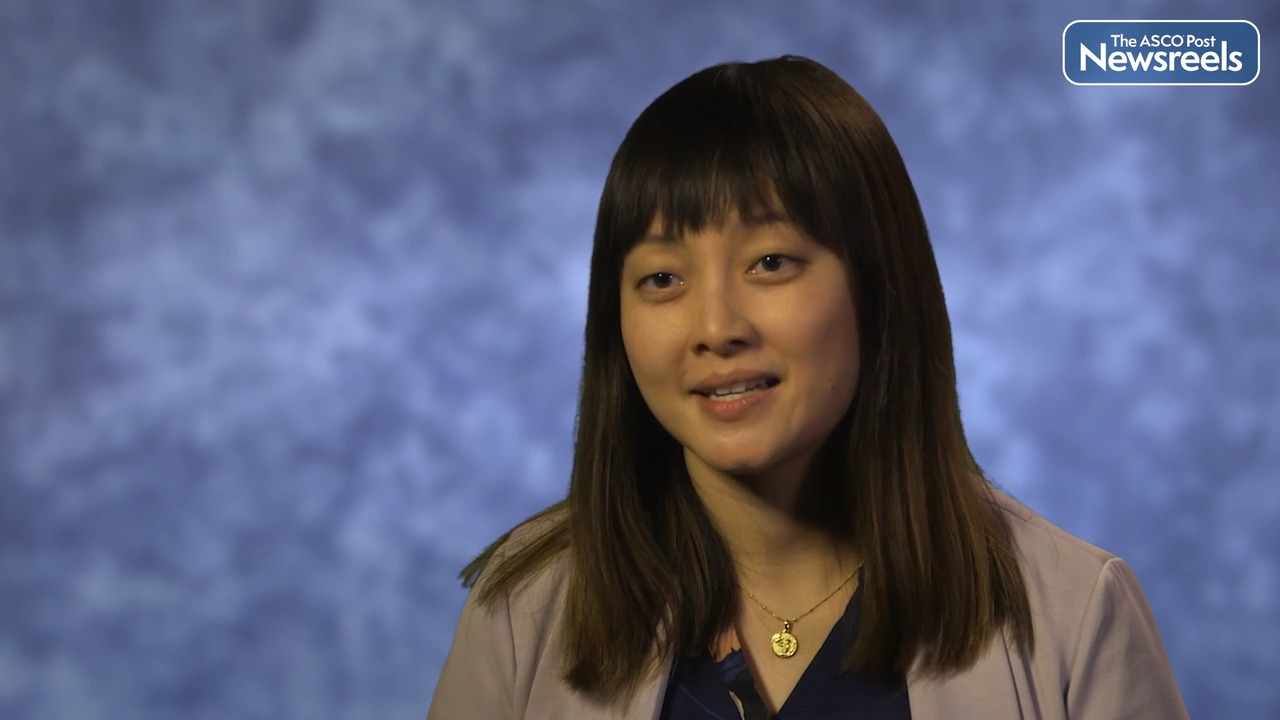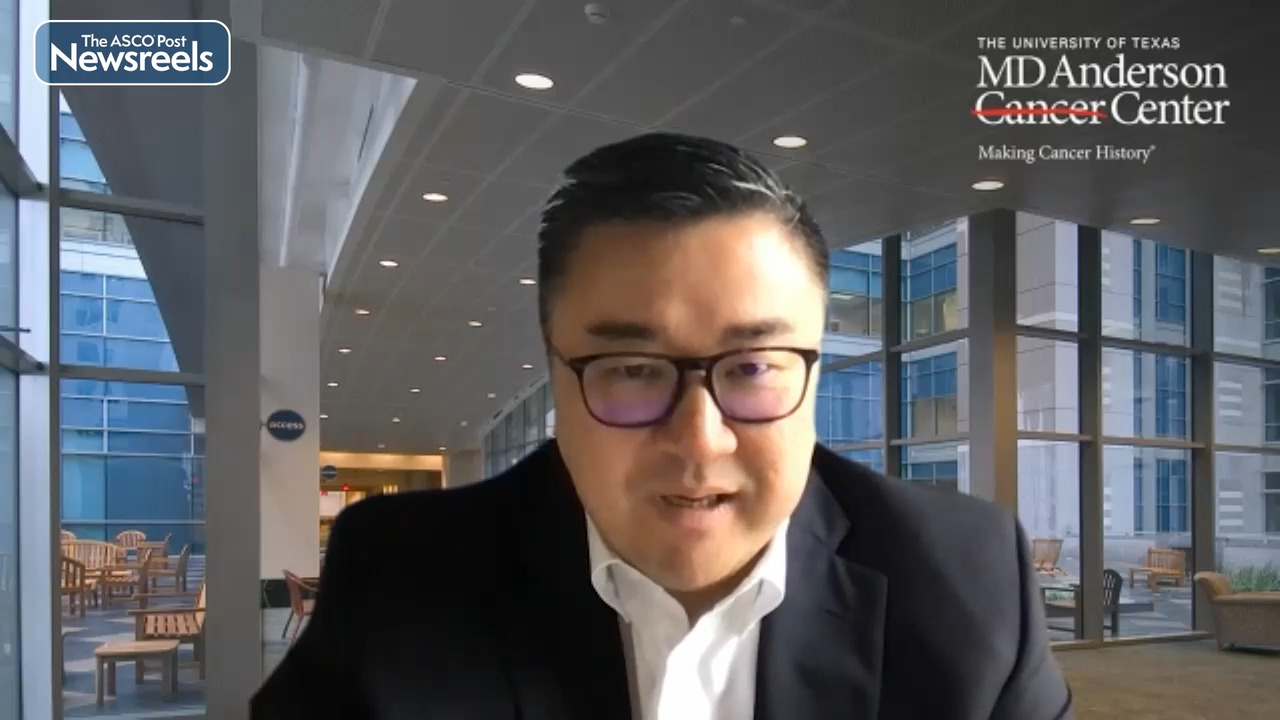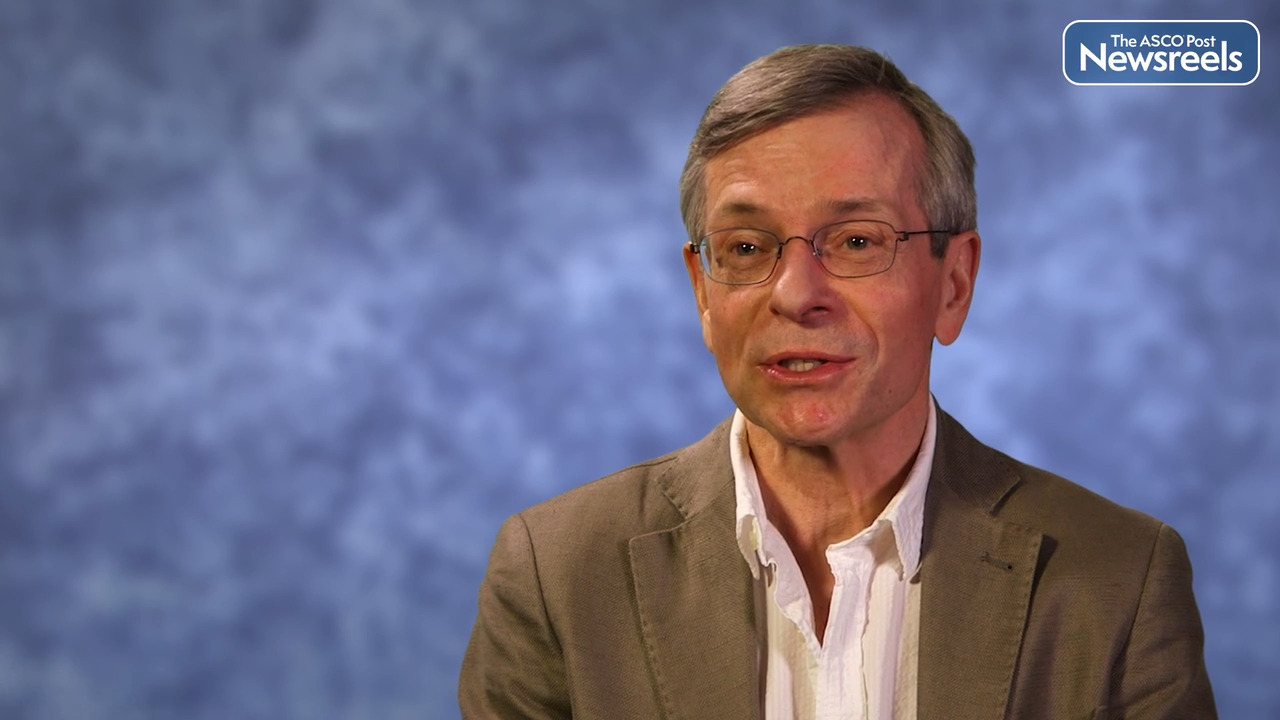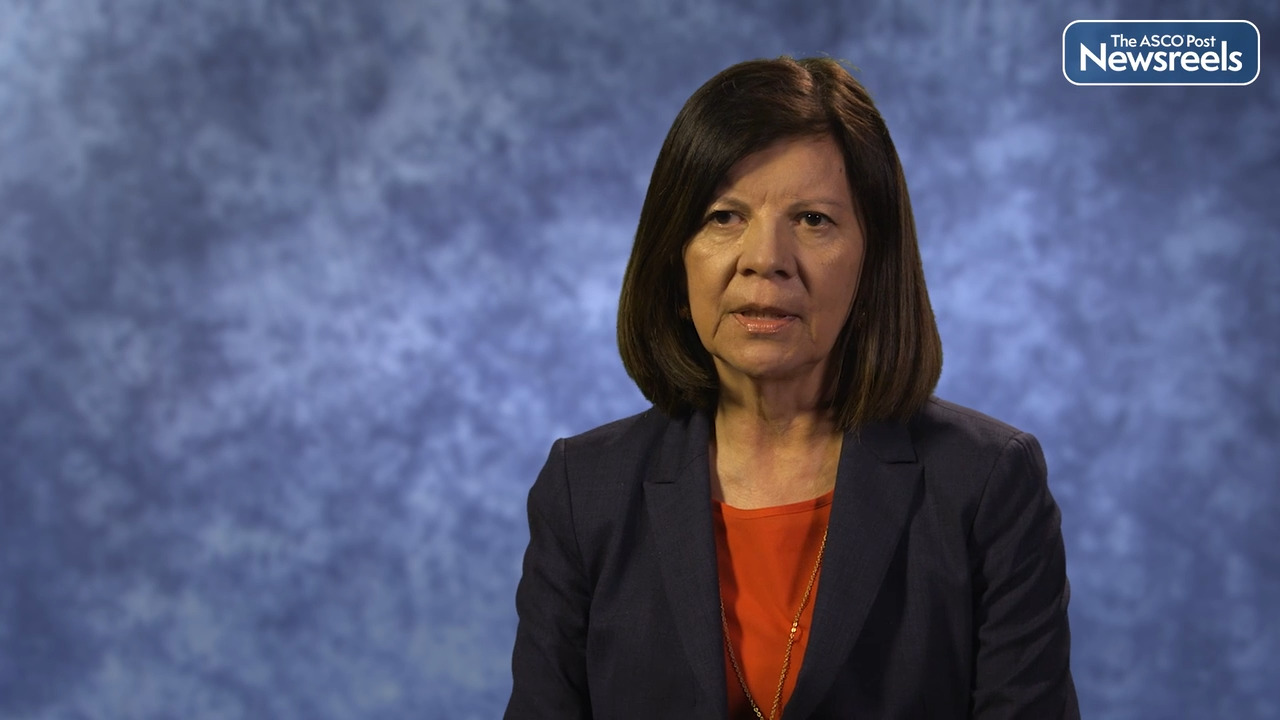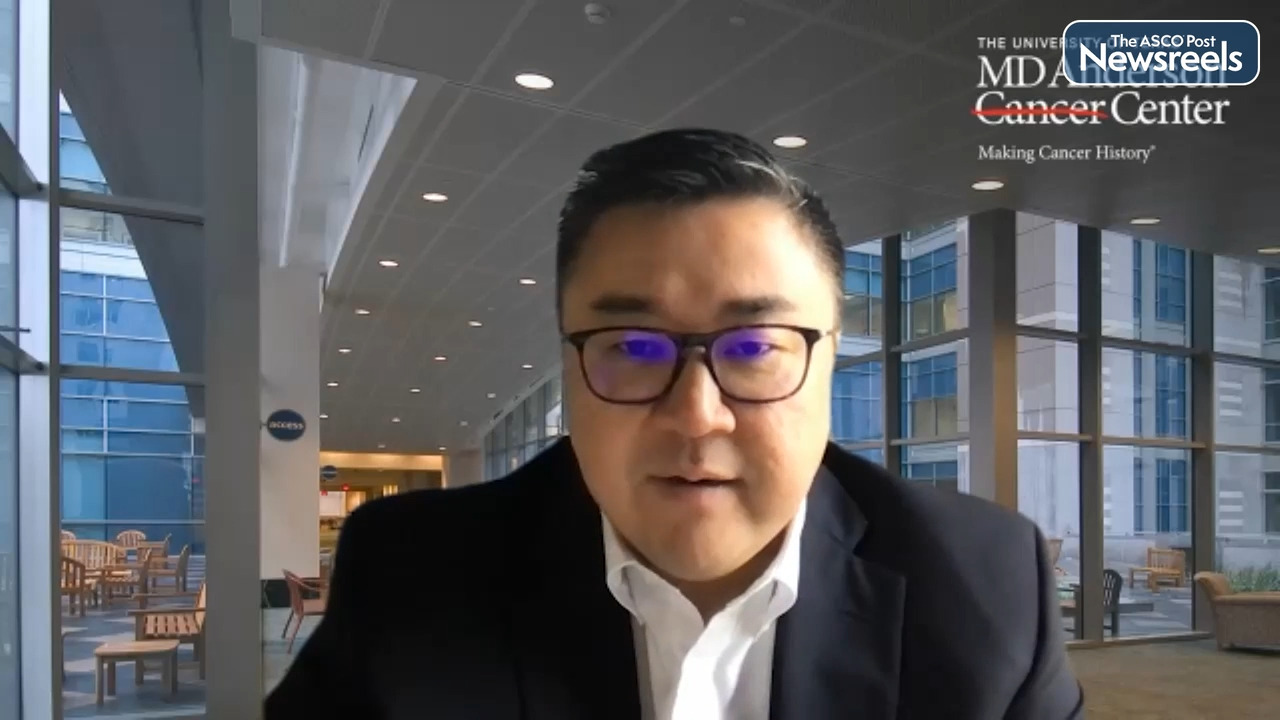Lillian L. Siu, MD, on Looking Toward the Future of Clinical Research and Clinical Trials
AACR Annual Meeting 2022
Lillian L. Siu, MD, of Canada’s Princess Margaret Cancer Centre, discusses biomarker-driven precision cancer medicine, the optimal sequencing of immunotherapy (IO) with standard treatments in curative settings, IO targets beyond PD-1/PD-L1 and combinatorial strategies, and next-generation adoptive cell therapies (Abstract PL06).
The ASCO Post Staff
Jia Luo, MD, of Dana-Farber Cancer Institute, discusses the emerging class of cancer therapies for allele-specific KRAS inhibitors and the importance of their distinct clinical, genomic, and immunologic features. Because KRAS G12D–mutated non–small cell lung cancer is associated with worse responses to immunotherapy, Dr. Luo believes drug development will need to take these differences into account (Abstract 4117).
The ASCO Post Staff
Timothy A. Yap, MBBS, PhD, of The University of Texas MD Anderson Cancer Center, discusses results from a phase Ib expansion trial of the safety and efficacy of the oral ataxia telangiectasia and Rad3-related (ATR) inhibitor elimusertib in advanced solid tumors with DNA damage response defects. Elimusertib is a selective inhibitor of ATR, a key regulator of responses to DNA damage and replication stress, with antitumor activity in preclinical models of various solid tumors and lymphoma (Abstract CT006).
The ASCO Post Staff
John B.A.G. Haanen, MD, PhD, of the Netherlands Cancer Institute, discusses findings from a phase I study designed to test the safety and efficacy of the CARVac (CAR-T cell-amplifying RNA vaccine) strategy to overcome poor CAR T-cell stimulation and responses in patients with CLDN6-positive advanced solid tumors. Men with testicular cancer in particular showed encouraging responses. Overall, some patients showed long-term CAR T-cell persistence more than 150 days post infusion. Partial responses seemed to deepen further over time (Abstract CT002).
The ASCO Post Staff
Maria Elena Martinez, PhD, MPH, of the University of California, San Diego Moores Cancer Center, provides an overview of the key components of the Accelerating Colorectal Cancer Screening and Follow-up through Implementation Science program, challenges posed by the COVID-19 pandemic, and opportunities for overcoming these challenges. Although screening and follow-up may reduce the incidence of and mortality from colorectal cancer, these disparities persist in medically underserved populations (Abstract SY30).
The ASCO Post Staff
Timothy A. Yap, MBBS, PhD, of The University of Texas MD Anderson Cancer Center, discusses how research is building on the success of first-generation PARP inhibitors in the clinic and the potential of novel potent PARP1-selective inhibitors, which may lead to improved patient outcomes. Given recent advances in drug discovery, says Dr. Yap, we now can go beyond PARP by drugging other key DNA damage response targets in the clinic, including ATR, WEE1, DNA-PK, RAD51, POLQ, and USP1.
